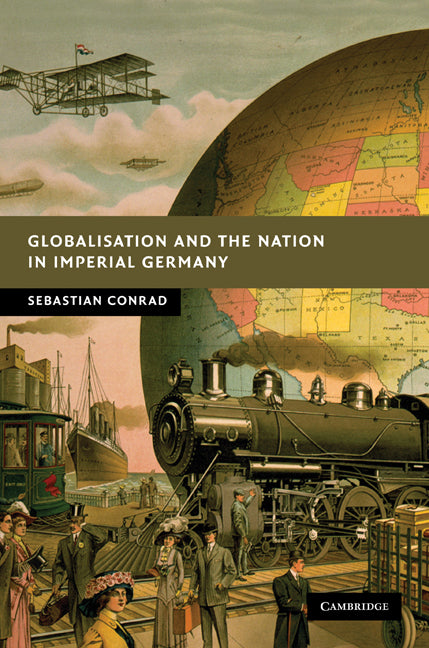Freshly Printed - allow 8 days lead
Couldn't load pickup availability
Globalisation and the Nation in Imperial Germany
Translation of award-winning study of the development of German nationalism in a global context.
Sebastian Conrad (Author), Sorcha O'Hagan (Translated by)
9780521763073, Cambridge University Press
Hardback, published 2 September 2010
506 pages, 9 b/w illus. 6 maps
22.9 x 15.2 x 2.9 cm, 0.84 kg
'Methodologically innovative, richly researched, and presented in a lively and engaging manner, Globalisation and the Nation in Imperial Germany brings together the history of Germany, its overseas empire in Africa and Asia, and its wider global engagements. By focusing on the complex intersection of practices of labor, racial and national ideologies, and the production of global inequalities, Conrad offers fresh insight not only into the history of Germany but also into the political, economic, and cultural processes that shaped the nineteenth and twentieth centuries and continue to shape the world today.' Andrew Zimmerman, George Washington University
The process of globalisation in the late nineteenth century had a profound effect on the trajectories of German nationalism. While the existing literature on the subject has largely remained within the confines of national history, Sebastian Conrad uses the example of mobility and labour migration to show to what extent German nationalism was transformed under the auspices of global integration. Among the effects of cross border circulation were the emergence of diasporic nationalism, the racialisation of the nation, the implementation of new border regimes, and the hegemony of ideological templates that connected nationalist discourse to global geopolitics. Ranging from the African colonies, China and Brazil to the Polish speaking territories in Eastern Europe, this groundbreaking book demonstrates that the dynamics of German nationalism were not only negotiated in the Kaiserreich but also need to be situated in the broader context of globalisation before the First World War.
Introduction
1. German globalisation around 1900
2. 'Native policy' in the colony and the metropole: 'educating to work' in East Africa and east Westphalia
3. Between the poles: mobility and nation in Germany's 'real colony'
4. The politics of segregation: Chinese workers, global networks and the 'colourless peril'
5. 'Here, the German is not degenerating': Brazil, emigration and the nation's fountain of youth
6. 'German work'
7. Regimes of territorialisation and the globalisation of the national
8. Bibliography.
Subject Areas: Modern history to 20th century: c 1700 to c 1900 [HBLL], European history [HBJD], General & world history [HBG]


